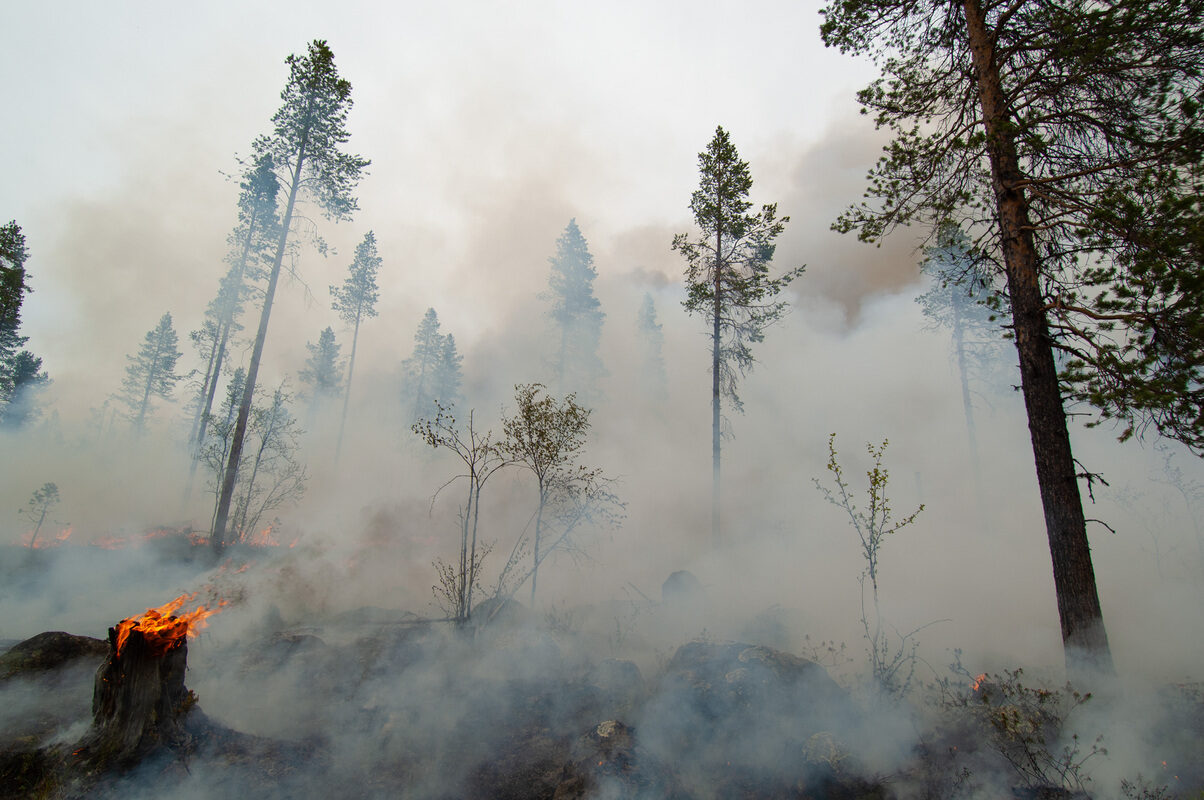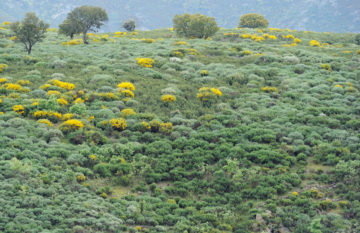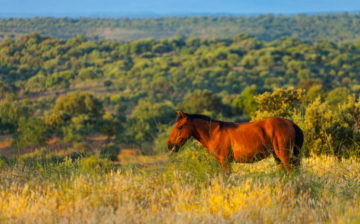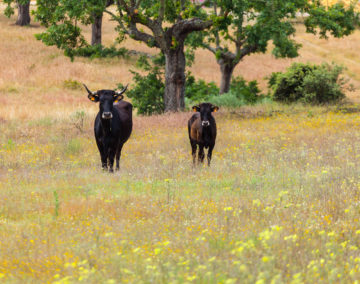Today, wildfire poses a major risk to people, property and nature around the world. A new study, carried out as part of the GrazeLIFE project, has found that grazing with large herbivores can significantly reduce this risk.

A proactive approach to mitigating wildfire

In many parts of the world, socio-economic factors are leading to rural depopulation and large-scale land abandonment. With nomadic practice and pastoralism also on the decline, extensive swathes of land are gradually being encroached on by shrubs and bushes, while trees are also accumulating combustible vegetation. As natural firebreaks disappear, so the risk and severity of wildfire outbreaks is increasing. In turn, more and more money is being invested in boosting firefighting capacity.
There are, however, far cheaper and potentially more effective ways of mitigating wildfire outbreaks and preventing them from occurring in the first place, particularly in areas experiencing rural depopulation. A new study, led by researchers from the German Centre for Integrative Biodiversity Research (iDiv), has found that large herbivores – including domestic livestock, wild and semi-wild herbivores – can effectively prevent and mitigate the impact of such outbreaks, replacing far costlier solutions such as firefighting and the mechanical removal of vegetation. The findings of the study were published in a paper in the Journal of Applied Ecology this week, with the research team also providing recommendations as to how European and global fire and agricultural policies could be revised to better support this approach.
Effective prevention

The new study was carried out as part of the GrazeLIFE project, which was requested and co-financed by the European Commission and coordinated by Rewilding Europe. The international study team, comprising researchers from the German Centre for Integrative Biodiversity Research (iDiv), Leipzig University, the Helmholtz-Centre for Environmental Research (UFZ), Wageningen University and CIBIO/InBIO (Research Centre in Biodiversity and Genetic Resources of University of Porto and University of Lisbon), examined whether large herbivores can reduce the amount of combustible vegetation in an area, thereby lowering wildfire risk.
To do this, the team evaluated existing studies investigating connections between herbivores, vegetation structure, fire risk, fire frequency and fire damage. They discovered that the effectiveness of such herbivores in reducing wildfire risk depends on a number of factors: herbivore population density, herbivore species and diet, and vegetation type and environmental conditions.
“In general terms, it is clear that wild and semi-wild herbivores such as horses and bison can reduce wildfire risk through their grazing,” says Julia Rouet-Leduc, lead author of the study and a doctoral researcher at iDiv and Leipzig University. “Such herbivores can be particularly effective in remote and inaccessible areas, where careful management can prevent wildfire and benefit wild nature in other ways.”
“Low-intensity grazing by wild and semi-wild herbivores creates short, grazed patches that can act as natural fire breaks, rather than uniformly short vegetation,” adds Dr Fons van der Plas, senior author of the study and an assistant professor at Wageningen University. “Where needed, short-term intensive grazing, known as ‘targeted grazing’, can be combined with other actions such as mechanical clearing to further reduce fire risk.”
Added value

As results from Rewilding Europe’s operational areas are showing, the positive impact of grazing using wild and semi-wild herbivores is not limited to reduced wildfire risk.
“Herds of large herbivores, particularly ones that are free-roaming, offer a range of other important co-benefits,” says Wouter Helmer, Rewilding Europe’s Senior Advisor and a co-author of the new paper. “They can be thought of as ‘landscape architects’, creating mosaic landscapes that support high levels of biodiversity. In addition, working with larger species that are better equipped to defend themselves against carnivores avoids conflict, as opposed to more vulnerable domesticated animals such as sheep and goats.”
Moving forward
Based on the findings of the research team, the new paper outlines several recommendations for land managers and policymakers reducing wildfire risk. One of these is to maintain and promote extensive grazing by domestic or (semi-)wild herbivores in areas currently experiencing land abandonment. This will mean integrating relevant agricultural, forestry and fire management policies, and providing financial support to those involved in fire prevention using such animals. In Europe, for example, the new Common Agricultural Policy (CAP) should support farmers and landowners using extensive grazing for wildfire management.
“Allowing animals to do the work is an exceptionally cost-efficient way of managing land,” says Dr Guy Pe’er, a researcher at iDiv and UFZ and also lead author of the study.
“In addition to lowering wildfire risk, they can bring a range of other benefits to local communities and help to create more resilient and functional ecosystems. As climate change progresses, wildfires are likely to become increasingly severe in many parts of the world, so it is critical that relevant national and international policies provide far more support for such nature-based solutions.”
